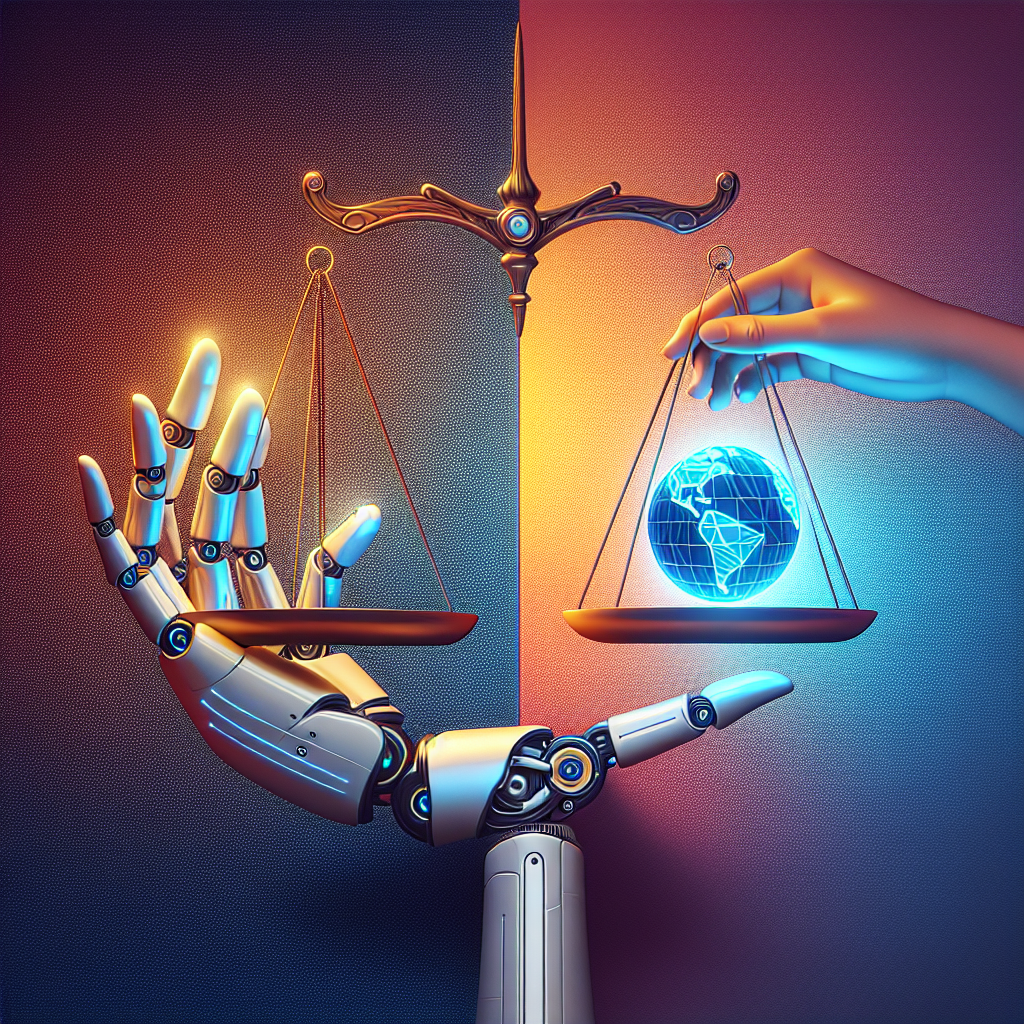Artificial Intelligence (AI) technology has rapidly advanced in recent years, bringing with it a host of benefits and opportunities. However, as AI becomes more integrated into our daily lives, there are growing concerns about the ethical implications of its use. From privacy issues to job displacement, the ethical considerations surrounding AI technology are complex and multifaceted.
One of the primary ethical concerns surrounding AI technology is the issue of privacy. As AI algorithms collect and analyze vast amounts of data about individuals, there is a risk that this information could be used in ways that violate privacy rights. For example, AI-powered surveillance systems could be used to track individuals without their consent, or AI algorithms could be used to make decisions about individuals’ lives without their knowledge.
Another ethical concern is the potential for AI technology to perpetuate bias and discrimination. AI algorithms are only as good as the data they are trained on, and if that data is biased or incomplete, the AI system may produce biased or discriminatory outcomes. For example, AI algorithms used in hiring processes have been shown to favor candidates of certain demographics over others, perpetuating existing inequalities in the workforce.
Additionally, there are concerns about the impact of AI technology on jobs and the economy. As AI systems become more advanced, there is a risk that they could automate a wide range of jobs, leading to widespread job displacement. While AI has the potential to create new jobs and industries, there are concerns about the pace of this transition and the potential for widespread unemployment.
Furthermore, there are concerns about the ethical implications of AI technology in the realm of warfare and national security. AI-powered weapons systems have the potential to make decisions about life and death without human intervention, raising questions about the ethics of using such technology in combat situations. There are also concerns about the potential for AI to be used in cyber warfare, with the potential to cause widespread harm and disruption.
In response to these ethical concerns, there have been calls for greater transparency and accountability in the development and use of AI technology. Some experts argue that AI algorithms should be open to scrutiny and audit, to ensure that they are fair and unbiased. Others advocate for the development of ethical guidelines and regulations to govern the use of AI technology.
There are also calls for greater diversity and inclusivity in the development of AI technology. By including a diverse range of voices and perspectives in the development process, it is hoped that AI systems can be designed in a way that is more fair and equitable.
Ultimately, the ethical implications of AI technology are complex and multifaceted. As AI technology continues to advance, it is essential that we consider the ethical implications of its use and work to ensure that AI is developed and used in a way that is fair, transparent, and accountable.
FAQs:
Q: What are some examples of AI technology being used unethically?
A: One example of AI technology being used unethically is the use of facial recognition technology by law enforcement agencies. There have been concerns about the potential for this technology to be used to track individuals without their consent, leading to violations of privacy rights.
Q: How can individuals protect their privacy in the age of AI?
A: Individuals can protect their privacy by being cautious about the information they share online and by using privacy-enhancing tools such as encryption and VPNs. It is also important to be aware of the privacy policies of the websites and apps you use, and to opt out of data collection whenever possible.
Q: What steps can be taken to address bias and discrimination in AI algorithms?
A: One way to address bias and discrimination in AI algorithms is to ensure that the data used to train these algorithms is diverse and representative. Additionally, algorithms should be regularly audited and tested for bias, and mechanisms should be put in place to address any biases that are identified.
Q: Are there any regulations in place to govern the use of AI technology?
A: There are currently few regulations specifically governing the use of AI technology, but there have been calls for the development of ethical guidelines and regulations to ensure that AI is used in a fair and accountable manner. Some countries have introduced regulations around specific uses of AI, such as facial recognition technology.
In conclusion, the ethical implications of AI technology are complex and multifaceted. From privacy concerns to issues of bias and discrimination, there are a range of ethical considerations that must be addressed as AI technology continues to advance. It is essential that we work to ensure that AI is developed and used in a way that is fair, transparent, and accountable, in order to harness the benefits of AI technology while minimizing its potential risks.

